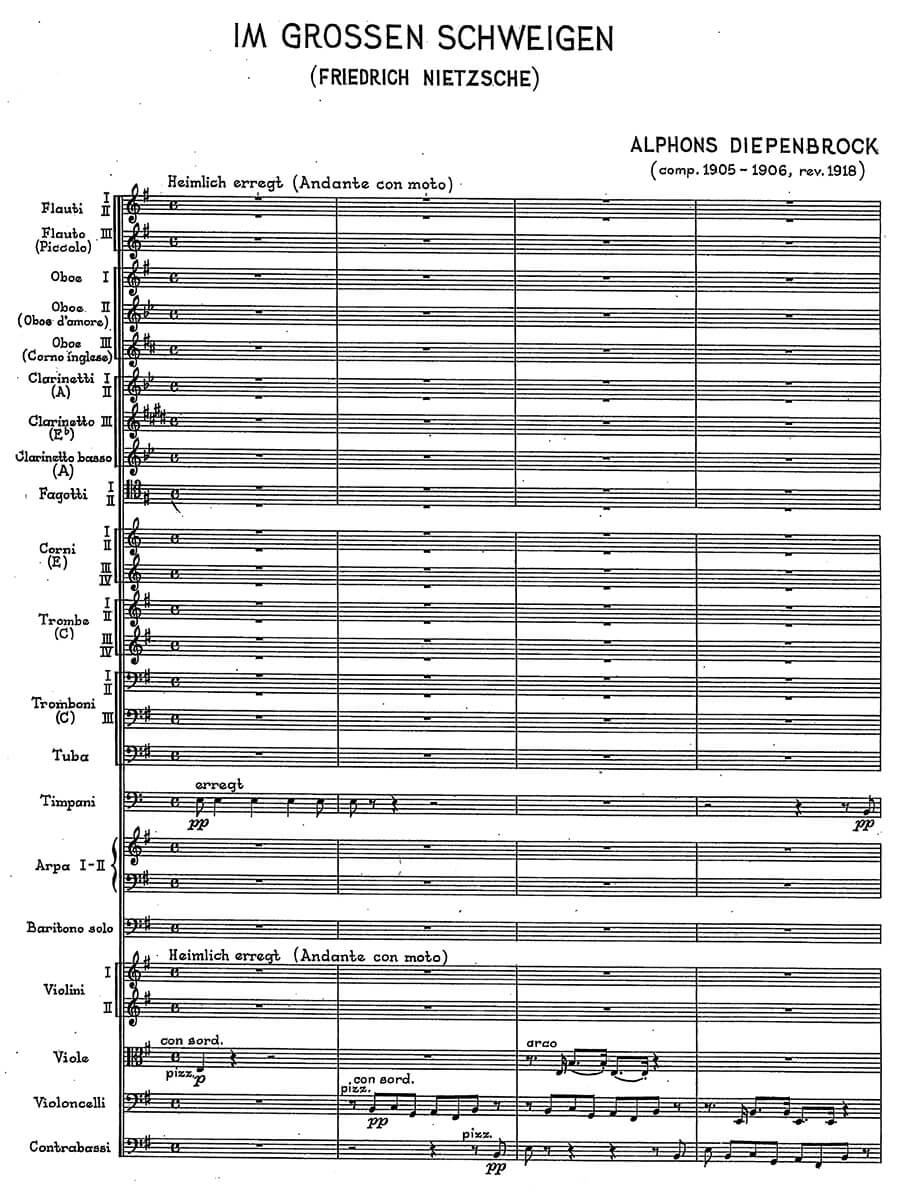Im grossen Schweigen for baritone and orchestra
Diepenbrock, Alphons
29,00 €
Alphons Diepenbrock – Im großen Schweigen (1905)
(b. Amsterdam, 2. September 1862 – d. Amsterdam, 5. April 1921)
Preface
For a long time the bon mot of the Netherlands as the country without music was valid. Gone are the days of the famous masters of vocal polyphony of the 16th century, such as Jan Pieterszoon Sweelinck. This only changed at the end of the 19th century, with the opening of the Concertgebouw Amsterdam and the founding of the world-famous Concertgebouw Orkest Amsterdam, both in 1888. Alphons Diepenbrock was the first Dutch composer to enjoy international fame after a long time, although he had never received any musical training! Born in 1862 into a wealthy family, he already showed musical talent as a child. He learned to play the violin, the organ and the piano. Nevertheless, music was not to play a central role in his life at first. He studied classical philology in Amsterdam from 1880 and completed his doctorate on Seneca in 1888. He left Amsterdam to take up a post as a high school teacher in ‘s-Hertogenbosch in the same year. However, the teaching profession did not fulfil him. In 1891 he completed his first major composition, the Missa in die festo. In 1895 he finally returned to Amsterdam. He only taught the old languages privately and devoted himself more to composing. For a long time he had been composing in his spare time without ever having been taught; he acquired his musical knowledge through numerous books on music theory. In addition, he attended concerts at the Concertgebouw whenever his time allowed. He even moved into a flat near the Concertgebouw in order to get there as easily as possible. The conductor of the Concertgebouw Orkest, Willem Mengelberg, gave him the opportunity to perform his own works with this outstanding orchestra. Diepenbrock experienced his breakthrough as a composer in 1900, with the performance of his Hymns to the Night.
In addition to the ancient languages and composing, Diepenbrock also published numerous writings on other subjects, such as philosophy and religion. His writings were held in higher esteem than his musical works at this time. His strong interest in literature led him to write predominantly text-bound music, i.e. mainly vocal music. In his works, he combined more recent influences, such as the chromatically enriched music of Wagner, later also Mahler (with whom he was also friends) and Debussy, as well as with the polyphony of the Flemish masters of the 16th century. …
Read full preface / Komplettes Vorwort lesen > HERE
| Edition | Repertoire Explorer |
|---|---|
| Genre | Choir/Voice & Orchestra |
| Size | 210 x 297 mm |
| Printing | Reprint |
| Pages | 106 |
